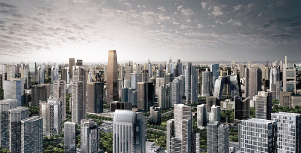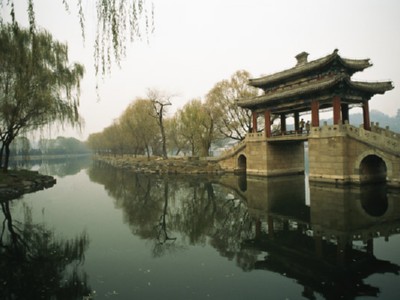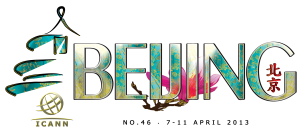
About Beijing
 Beijing, sometimes romanized as Peking, is the capital of the People's Republic of China and one of the most populous cities in the world, with a population of 19,612,368 as of 2010. The metropolis, located in northern China, is governed as a direct-controlled municipality under the national government, with 14 urban and suburban districts and two rural counties. Beijing Municipality is surrounded by Hebei Province with the exception of neighboring Tianjin Municipality to the southeast.
Beijing, sometimes romanized as Peking, is the capital of the People's Republic of China and one of the most populous cities in the world, with a population of 19,612,368 as of 2010. The metropolis, located in northern China, is governed as a direct-controlled municipality under the national government, with 14 urban and suburban districts and two rural counties. Beijing Municipality is surrounded by Hebei Province with the exception of neighboring Tianjin Municipality to the southeast.
Beijing is China's second largest city by urban population after Shanghai and is the country's political, cultural, and educational center, and home to the headquarters for most of China's largest state-owned companies. Beijing is a major transportation hub in the national highway, expressway, railway and high-speed rail network. Beijing's Capital International Airport is the second busiest in the world by passenger traffic.
Few cities in the world have been the political and cultural centre of an area as immense for so long. Beijing is one of the Four Great Ancient Capitals of China, and it has been the political centre of China for centuries. The city is renowned for its opulent palaces, temples, and huge stone walls and gates, and its art treasures and universities have made it a centre of culture and art in China.
 CULTURE
CULTURE
People native to urban Beijing speak the Beijing dialect, which belongs to the Mandarin subdivision of spoken Chinese. This speech is the basis for putonghua, the standard spoken language used in mainland China and Taiwan, and one of the four official languages of Singapore. Rural areas of Beijing Municipality have their own dialects akin to those of Hebei province, which surrounds Beijing Municipality.
Beijing or Peking opera (Jīngjù, 京剧), is a traditional form of Chinese theatre well known throughout the nation. Commonly lauded as one of the highest achievements of Chinese culture, Beijing opera is performed through a combination of song, spoken dialogue, and codified action sequences involving gestures, movement, fighting and acrobatics. Much of Beijing opera is carried out in an archaic stage dialect quite different from Modern Standard Chinese and from the modern Beijing dialect.
Beijing cuisine is the local style of cooking. Peking Roast Duck is perhaps the best known dish. Fuling Jiabing, a traditional Beijing snack food, is a pancake (bing) resembling a flat disk with a filling made from fu ling, a fungus used in traditional Chinese medicine. Teahouses are common in Beijing.
The cloisonné (or Jingtailan, literally "Blue of Jingtai") metalworking technique and tradition is a Beijing art specialty, and is one of the most revered traditional crafts in China. Cloisonné making requires elaborate and complicated processes which include base-hammering, copper-strip inlay, soldering, enamel-filling, enamel-firing, surface polishing and gilding. Beijing's lacquerware is also well known for its sophisticated and intrinsic patterns and images carved into its surface, and the various decoration techniques of lacquer include "carved lacquer" and "engraved gold".
Younger residents of Beijing have become more attracted to the nightlife, which has flourished in recent decades, breaking prior cultural traditions that had practically restricted it to the upper class.
TOURISM
At the mention of Beijing, what will be your first thoughts?The Imperial Palace, the Tiananmen Square, the Temple of Heaven, the Summer Palace, and the Old Summer Palace……
However, compared with the ancient Beijing, modern Beijing is more charming! The Dashanzi Art District, the “Happy Valley” theme park, the Quanjude Roast Duck and the local flavors in Wangfujin……
For more information, please visit http://www.visitbeijing.com.cn/
http://www.visitbeijing.com.cn/visitbjapp/index.shtml for mobile phone clients















